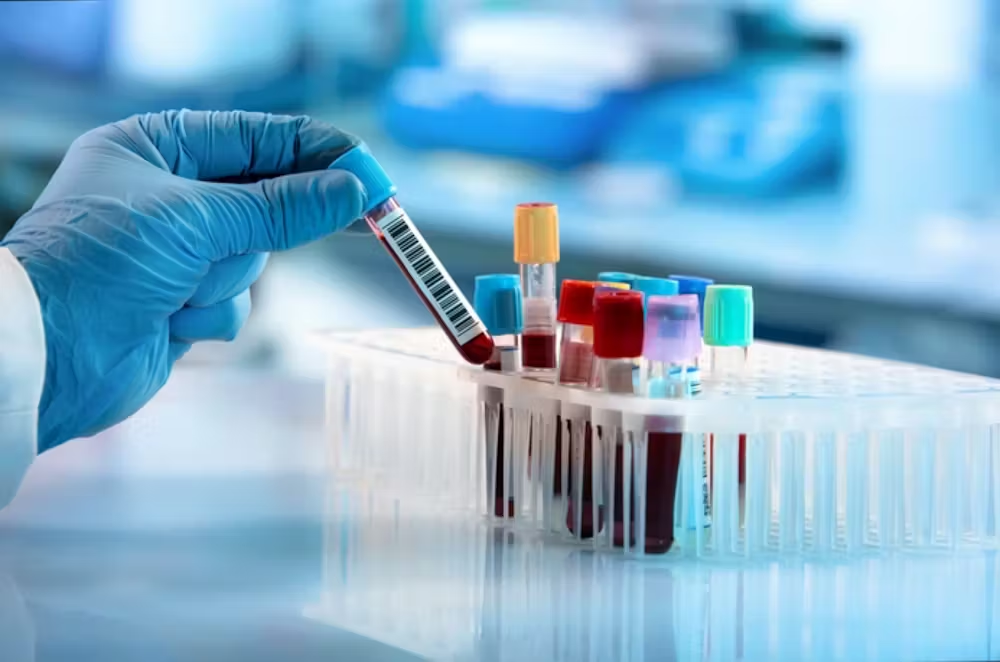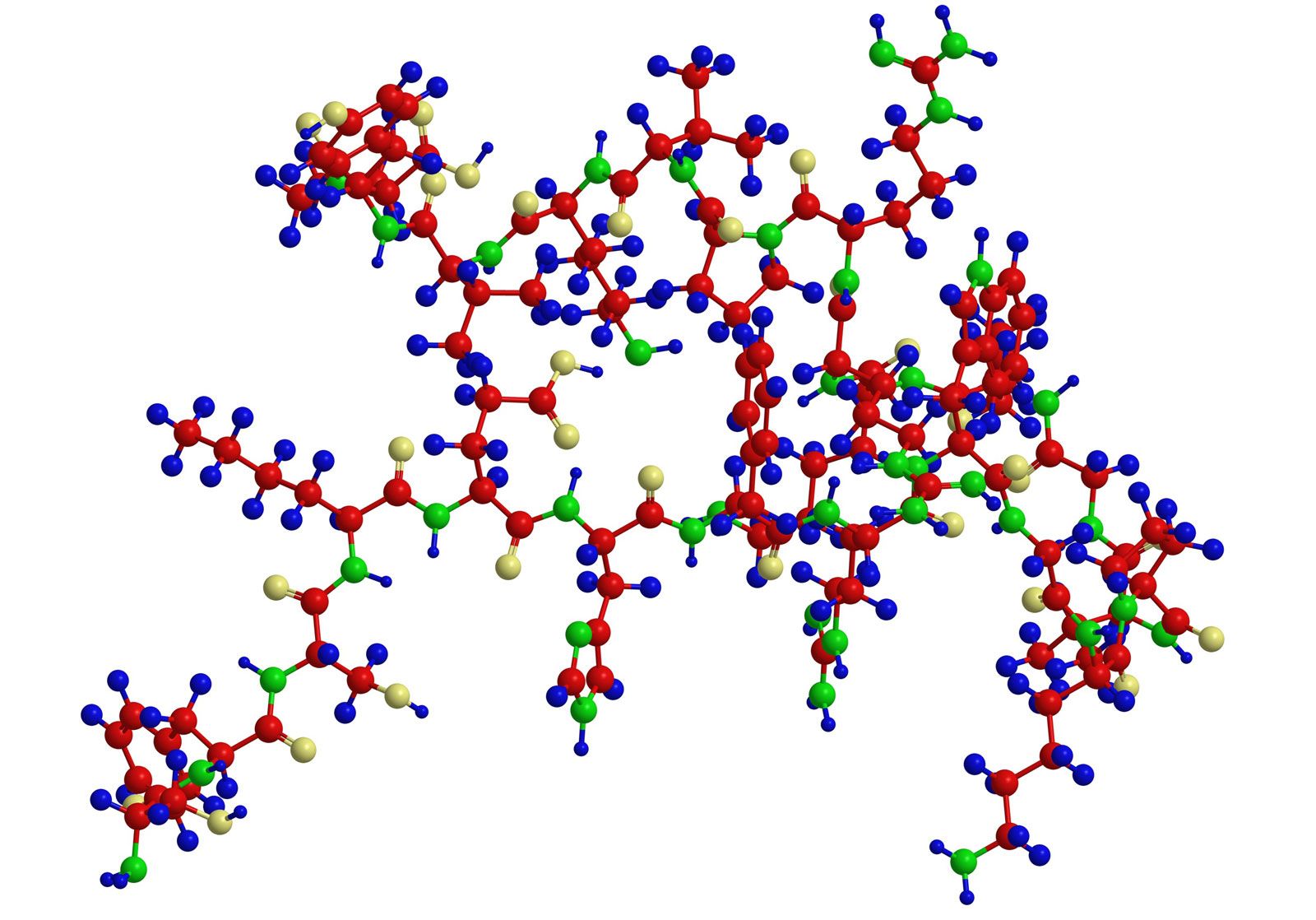Total Serum Protein Test
Protein isn’t just something you get from food or take after a workout. Inside your blood, protein plays a critical role in immunity, transport, repair, and balance. That’s why the total serum protein test (also known as the total protein test) is such a valuable window into your body’s inner workings. At Everlab, we measure total serum protein as part of every full diagnostic. It helps us understand how your liver, kidneys, immune system, and nutritional status are functioning—and what action to take next. It acts as an early indicator of multiple chronic diseases and allows for timely, targeted intervention before more serious symptoms or conditions develop.

Total Serum Protein Test In Australia, Get Tested Today
What:
Blood biomarker
Tests for:
Liver and kidney function
Referral:
Required
Average cost:
Part of larger blood panel
What Is Total Serum Protein?

The basics
Total serum protein is a measurement of all the proteins circulating in the liquid portion of your blood (serum). It includes two main types:
- Albumin: Makes up about 60% of total serum protein. Produced by the liver, it helps maintain fluid balance, transports hormones, vitamins, and drugs, and plays a role in tissue repair and detoxification.
- Globulins: A group of proteins involved in immune responses, inflammation regulation, blood clotting, and the transport of metals like iron and copper. The combined amount of all globulin proteins measured in the test is referred to as total globulins. Gamma globulins, a subtype of globulins, are important for immune response and help fight infection.
Together, these proteins support nearly every essential function in your bloodstream. Abnormal levels can signal problems in multiple body systems, including the liver, kidneys, digestive tract, and immune system. In addition to albumin and globulins, there are other proteins present in serum, though in smaller amounts.
How it's measured
A healthcare provider will draw blood to obtain a sample for the total serum protein test. The total serum protein test uses a standard blood sample, measuring the combined amount of albumin and globulins in grams per litre (g/L). The total protein test measures the levels of these proteins in the blood plasma, and results are often reported in grams per litre (g/l), with typical reference ranges being 60–80 grams per litre (g/L). Protein test measures are used to assess organ function, nutritional status, and help diagnose conditions related to the liver, kidneys, and immune system.
This test is quick, non-invasive, and typically included in a metabolic or liver panel.
Why Is Serum Protein Important?
Supports every major system
Protein in your blood is crucial for:
- Maintaining fluid balance between your blood vessels and tissues, preventing swelling or dehydration at the cellular level.
- Transporting hormones, vitamins, and enzymes that regulate everything from metabolism to immune activity.
- Supporting your immune system by producing antibodies and inflammatory regulators.
- Carrying waste products such as ammonia and bilirubin to your liver or kidneys for safe elimination.
The total amount of protein in your blood is a key indicator of good health. Measuring the amount of protein helps assess organ function and can detect or monitor various health conditions.
If serum protein levels are too low or high, changes in the amount of protein can signal underlying health conditions or medical conditions such as chronic inflammation, liver cirrhosis, kidney damage, poor nutrient absorption, or autoimmune disease. These shifts are rarely random and often provide key early insights.
Sensitive to subtle changes
Because protein production and breakdown are tightly regulated, even small shifts in total serum protein can act as a biomarker for disease onset or metabolic stress. Even slight deviations from normal total protein levels can indicate abnormal protein levels, which may require further investigation to determine underlying causes. These shifts might reflect malnutrition, overactive immune responses, or failure in protein synthesis pathways, which are often linked to early chronic disease stages.
Why Get a Total Serum Protein Test?
It helps assess multiple systems at once
Unlike single-marker tests, total serum protein offers a systems-level view of your health:
- Liver function: Albumin is synthesised in the liver, so low levels may point to cirrhosis, hepatitis, or fatty liver disease.
- Kidney function: Excessive protein in urine (proteinuria) reduces serum levels and suggests compromised filtration in chronic kidney disease.
- Immune activity: Infections and autoimmune conditions often cause spikes in globulins, which affect the total protein level.
- Nutritional status: Protein deficiencies due to diet, malabsorption, or gastrointestinal illness can be detected early.
Abnormal test results can help your healthcare provider diagnose underlying conditions such as kidney disease, liver disease, or nutritional problems. If your test results are outside the normal range, your provider may recommend further tests or more tests to determine the cause.
You won’t always feel the symptoms
Low or high serum protein levels can be completely asymptomatic for months or years. When signs like fatigue, weakness, infections, swelling, or unexplained weight changes do appear, the underlying damage may already be extensive.
That’s why at Everlab, we test this proactively—it helps us spot imbalances that wouldn't be visible with general check-ups.
What Affects Total Serum Protein Levels?
Diet and absorption
Inadequate protein intake or poor digestion can quickly lead to low protein total serum levels. Inadequate protein intake or absorption can cause nutritional problems, which may be detected through total serum protein testing. Causes include:
- Diets lacking complete proteins (e.g. strict vegan diets without proper planning)
- Digestive disorders like coeliac disease, Crohn’s, or chronic pancreatitis
- Weight-loss surgeries that impair nutrient absorption
These issues often go unnoticed until a blood test reveals a deficiency.
Liver and kidney health
- Liver dysfunction impairs albumin synthesis. Conditions such as cirrhosis, fatty liver, or hepatitis may reduce total serum protein significantly.
- Kidney damage allows protein to leak into the urine. If your kidneys aren’t filtering properly, total serum protein drops while urinary protein rises.
Monitoring both liver enzymes and kidney filtration markers alongside protein levels gives a more complete picture.
Chronic inflammation or infection
Long-standing inflammatory states—whether from autoimmune diseases, low-grade infections, or undiagnosed cancers—can increase globulin production. This leads to a serum protein high result and often alters the albumin-to-globulin ratio.
Dehydration or overhydration
- Dehydration concentrates blood, artificially raising total protein
- Overhydration (often in hospital settings) can dilute it, lowering values
Hydration status must be factored into test interpretation.
Cancer or immune disorders
Some cancers, especially blood cancers like multiple myeloma or lymphoma, cause abnormal production of specific globulin proteins. These contribute to a high total serum protein and require further investigation.
Serum Protein Normal Range

Most labs consider the serum protein normal range to be:
60 to 80 g/L (grams per litre)
Reference ranges may vary between different laboratories, so results should always be interpreted in the context of the specific lab's standards.
This range is a guideline, not a hard rule. Important context includes:
- Age, hydration, and medication use
- Ratio of albumin to globulin (ideal is ~1.2 to 1.5)
- Other markers such as CRP, liver enzymes, urea, creatinine, and urine protein
Values slightly outside this range may be completely normal for one person but worrisome for another depending on the full clinical picture.
At Everlab, we interpret this number only in combination with your full biological profile.
Understanding Low or High Total Serum Protein
Low total serum protein
Common causes:
- Liver disease: Albumin production drops in cirrhosis or hepatitis
- Kidney disease: Protein is lost through urine in chronic kidney damage
- GI disorders: Inflammatory bowel diseases impair absorption of dietary protein
- Malnutrition: From eating disorders, chronic illness, or alcohol dependence
- Inflammation: Chronic conditions shift resources from albumin to globulin production
Symptoms may include:
- Fluid retention or oedema (swelling in legs, face, abdomen)
- Chronic fatigue and weakness
- Increased susceptibility to infections
- Hair loss, brittle nails, and dry skin
- Poor wound healing
High total serum protein
Common causes:
- Autoimmune disease: Conditions like lupus, Sjogren’s, or rheumatoid arthritis increase globulin proteins
- Chronic infections: Including TB, hepatitis, or chronic bronchitis
- Certain cancers: Especially blood cancers that increase abnormal protein production
- Dehydration: Falsely elevates protein concentration
High blood protein may be detected through this test and can indicate underlying health issues. Often, high blood protein itself does not cause symptoms, but it may prompt your healthcare provider to order additional tests to determine the cause.
Symptoms may include:
- Numbness or tingling in limbs
- Night sweats, fever, or weight loss
- Bone pain (suggestive of plasma cell cancers)
- Difficulty healing or immune disturbances
How To Prepare for a Total Serum Protein Test
To get the most accurate result:
- Hydrate properly the day before and morning of your test
- Avoid alcohol and heavy meals the night before
- Avoid intense exercise 24 hours prior, which can alter plasma concentrations
- List all supplements and medications, including protein powders, anti-inflammatories, or corticosteroids. Do not stop taking certain medicines unless advised by your healthcare provider, as some medications can affect test results.
- Let your clinician know if you’re sick, stressed, or recently hospitalised
Everlab provides tailored prep instructions for your full test panel to minimise error and variability.
Risks and Limitations of the Test
It's a screening tool, not a final answer
The total serum protein test can suggest there’s a problem, but can’t always tell you what kind. Further testing such as serum electrophoresis, immunoglobulin panels, liver ultrasound, or urine protein measurement may be required. In particular, serum protein electrophoresis or protein electrophoresis may be ordered to further investigate abnormal protein levels and help diagnose conditions like multiple myeloma.
Temporary variables affect it
Factors like dehydration, acute illness, or recent IV fluids can shift results. These don’t always indicate disease but must be interpreted carefully.
Requires expert clinical judgement
Interpreting serum protein levels involves looking at trends over time, medication history, other labs, and your personal risk factors. At Everlab, our doctors specialise in this systems-level interpretation.
What Does Total Serum Protein Reveal About Long-Term Health?
Tracking protein levels regularly helps identify:
- Nutritional decline before it leads to frailty, especially in older adults
- Liver or kidney impairment before symptoms like jaundice or swelling occur
- Chronic inflammation which contributes to cardiovascular disease, neurodegeneration, and metabolic conditions
- Pre-cancerous activity especially in the bone marrow or immune system
That makes this test a powerful tool for preventive health and longevity planning.
How To Improve Your Total Serum Protein Levels
If your levels are low:
- Boost dietary intake of lean meats, eggs, legumes, fish, dairy
- Fix gut issues (SIBO, Crohn’s, IBS) to improve absorption
- Support liver health with low alcohol intake, weight management, and hepatoprotective nutrients
- Monitor kidney protein loss through 24-hour urine protein and kidney filtration markers
If your levels are high:
- Stay hydrated to reduce artificially concentrated levels
- Work with your doctor to manage immune or inflammatory disorders
- Investigate chronic infections or malignancies if levels are persistently elevated
Small, strategic changes can restore balance and protect against more serious disease progression.
Sources
1. NIH: Nutritional Laboratory Markers in Malnutrition
https://pmc.ncbi.nlm.nih.gov/articles/PMC6616535/
2. NIH: Hypoalbuminemia
https://www.ncbi.nlm.nih.gov/books/NBK526080/
3. NIH: Serum Albumin and Globulin
https://www.ncbi.nlm.nih.gov/books/NBK204/
4. NIH: Studies On The Clinical Significance Of The Serum Proteins
https://jamanetwork.com/journals/jamainternalmedicine/article-abstract/549122?
Get On Top Of Your Total Serum Protein
Your total serum protein level offers a valuable window into liver, kidney, immune, and nutritional health. At Everlab, we track it as part of our full-body diagnostic to catch imbalances early. With expert interpretation and personalised action plans, we help you protect your health before symptoms start.
.png)